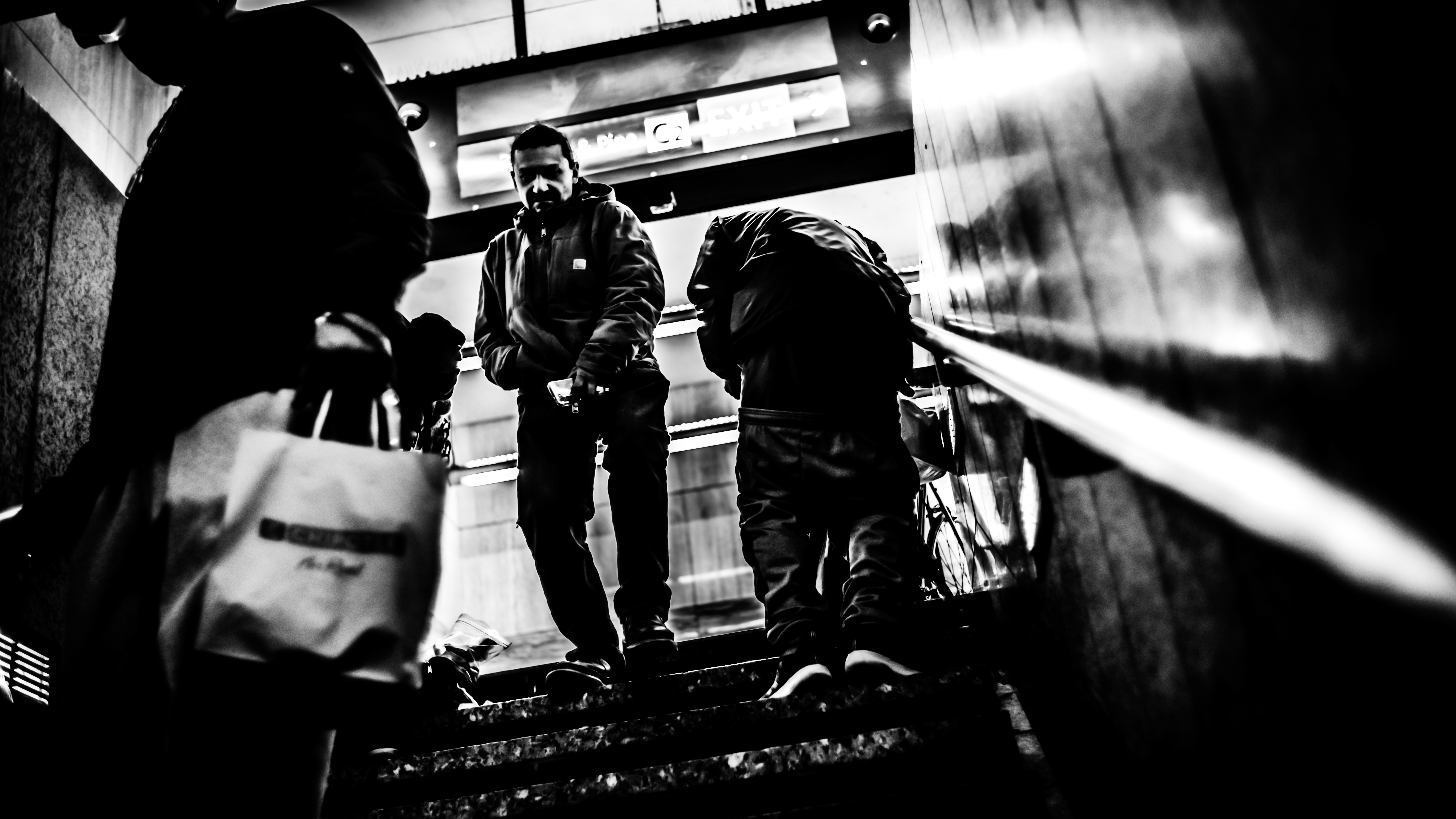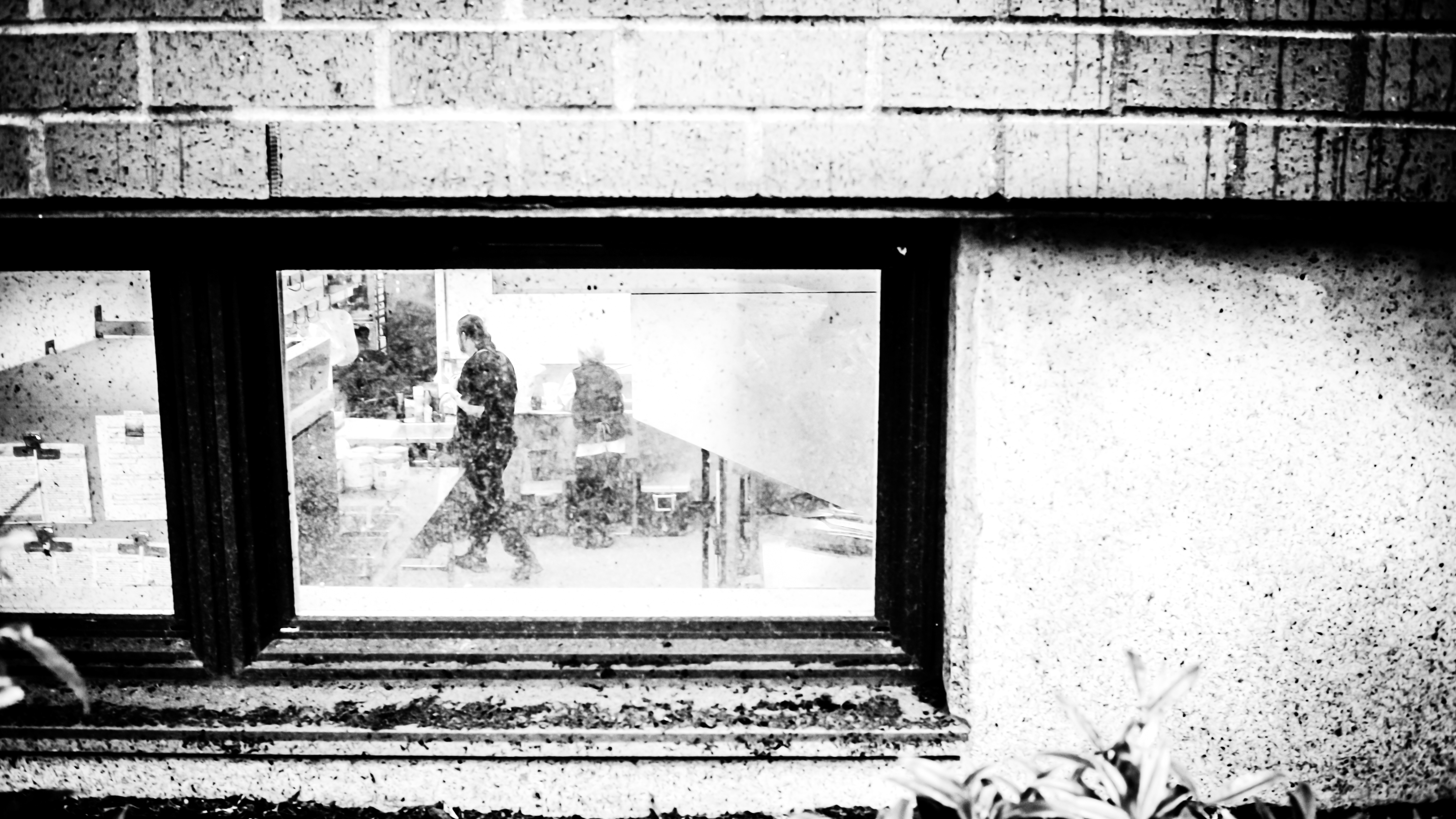Sixth Street and Martin Luther King Drive, Bremerton, Washington. March to April 2025
Q: What really drives Gian to document a homeless situation, particularly in Bremerton?
A: In my first sentence, it was clout and "peacocking" against women. I feel insecure and threatened when attractive women receive these privileges to travel and "have nice things. " I constantly compare myself to others and think that I am the "worst" person to exist.
To the transients, it sounded like I was making all of the excuses to dodge the real problem: the perceived "rudeness" and being unkind.
"Strong Men Cry", Bremerton, March 2025
Turning 360, 2025
Agitated Transient, December 2024
Q: What do you benefit from making the project?
A: If there is no respect, or if the transient population does not feel respected, I must be doing it wrong. If I were double the arms-length, people get skittish and self-conscious around a "random" man swinging his camera. Currently, my approach is kinda the "Winogrand-esque" or "Gilden-esque". Which Pacific Northwest isn't much known for the art form of street and documentary photography. It's a "small town feel" when the "B-Town" is not Seattle or Vancouver (Canada).
In Bremerton, it's not impossible for anyone (or any person) to start a photo essay and photography project. They say that even an iPhone should do a lot in documenting the small-town and suburban scenes. I read a blog by Eric Kim that being an extrovert and engaging in small talk can allay the suspicion and appear friendlier and trustworthy to the residents.
Downtown Library
Residing in Port Orchard for the first few years in Kitsap County, I have been photographing the transient population and community in Bremerton several times. Every month, I have photographed at least one homeless, low-income, transient, or economically disadvantaged resident. Every day, I saw homeless people across the Pacific Northwest and Puget Sound. A coalition and community members look out for each other and have values that treat each of them as a second family. As a documentarian, I have no obligation nor shall I have a responsibility, to engage with acts of charity with them. There have been enough people who are already willing to assist.
The last time I photographed near the local Salvation Army and Sixth Street was January 2024. I did not hang around or linger long. Many of the shelter residents are under the "protected address". However, that has nothing to do when it comes to photographing the transients, sexual abuse survivors, and the mentally ill. Clients for medical and public assistance programmes do not apply to my body of work.

